#insulin resistance reduction
Explore tagged Tumblr posts
Text
Sugar Defender: Natural Blood Sugar Support Supplement
Managing blood sugar can be tough, but Sugar Defender offers a natural way to help. This supplement is made to keep blood sugar levels healthy. It fights insulin resistance and boosts metabolic health.
It uses a mix of powerful, studied ingredients. Sugar Defender aims to fix blood sugar problems from the start. This lets people control their glucose and live healthier.

Click Here To Try Sugar Defender Today!
Key Takeaways
Sugar Defender is a natural supplement that supports healthy blood sugar levels.
The formula combats insulin resistance and promotes effective glucose metabolism.
Clinically-studied ingredients work together to provide a holistic approach to blood sugar management.
The supplement helps maintain overall metabolic health and well-being.
Sugar Defender offers a safe and effective alternative to manage blood sugar concerns.
What is Sugar Defender?
Sugar Defender is a top-notch nutritional supplement. It helps keep blood sugar levels healthy with natural ingredients. It has a mix of compounds that boost glucose metabolism and insulin sensitivity.
Understanding the Power of Natural Ingredients
Sugar Defender uses strong natural ingredients. These include chromium, berberine, and alpha-lipoic acid. They help the body use glucose better and keep blood sugar levels stable.
The Science Behind Blood Sugar Regulation
Keeping blood sugar levels right is key for health. Sugar Defender uses the latest science to help. It supports glucose use and insulin sensitivity to manage blood sugar.IngredientFunctionChromiumSupports glucose metabolism and insulin sensitivityBerberineHelps regulate blood sugar levels and improve insulin resistanceAlpha-Lipoic AcidPromotes glucose uptake and protects against oxidative stress
"Sugar Defender provides a comprehensive solution to help users maintain optimal glycemic control and prevent the negative consequences of blood sugar imbalances."
Benefits of Sugar Defender
Sugar Defender is a natural supplement that helps keep blood sugar levels healthy. It tackles the root causes of blood sugar issues, like insulin resistance. This product aids in managing glucose levels, lowering the chance of diabetes and its complications.
Maintaining Healthy Blood Sugar Levels
Sugar Defender is great for controlling blood sugar and glucose management. It uses natural ingredients to boost insulin sensitivity. This makes glucose use more efficient, avoiding sudden blood sugar changes.
This is especially helpful for those with insulin resistance, a sign of type 2 diabetes.
Keeping blood sugar levels in check, Sugar Defender also boosts metabolic health and diabetes prevention. It tackles the causes of metabolic disorders. This way, users can manage their glucose better and lower the risk of serious health issues.BenefitDescriptionBlood Sugar ControlHelps regulate blood glucose levels, preventing spikes and dropsInsulin SensitivityEnhances the body's responsiveness to insulin, improving glucose utilizationMetabolic SupportPromotes overall metabolic health and energy productionDiabetes PreventionReduces the risk of developing type 2 diabetes and related complications
Adding Sugar Defender to a healthy lifestyle is a smart move. It helps keep blood sugar levels healthy and supports overall metabolic well-being.
Ingredients in Sugar Defender
Sugar Defender is a supplement that uses natural ingredients to help with blood sugar regulation, insulin sensitivity, and metabolic support. It has a mix of clinically-studied nutrients. This mix aims to keep blood sugar levels in check.
At the heart of Sugar Defender are three main ingredients:
Chromium, a trace mineral that boosts insulin sensitivity and helps cells take in glucose better.
Berberine, a strong compound from plants, known for its blood sugar regulation and metabolic improvement abilities.
Alpha-lipoic acid, a strong antioxidant that reduces oxidative stress and enhances insulin sensitivity.
These natural ingredients work together to offer a complete solution for optimal blood sugar balance. Sugar Defender targets different ways glucose is regulated. This gives a full support for metabolic health.
"Sugar Defender's unique blend of clinically-studied nutrients has been shown to effectively support healthy blood sugar levels and promote insulin sensitivity."
Sugar Defender also includes other carefully selected natural compounds like vitamin D, magnesium, and zinc. These ingredients help keep blood sugar levels stable, improve insulin function, and support metabolic health.
How Sugar Defender Works
Sugar Defender is a natural supplement that helps keep blood sugar levels healthy. It focuses on two main areas: insulin resistance and glucose metabolism. This targeted approach makes it very effective.
Targeting Insulin Resistance
Insulin resistance is a big problem that can lead to blood sugar issues. Sugar Defender makes the body use insulin better. This helps control blood sugar levels.
By making insulin work better, the supplement helps glucose get into cells. This stops glucose from building up in the blood.
Promoting Glucose Metabolism
Sugar Defender also helps with glucose metabolism. Its natural ingredients support the body's natural glucose use. This keeps blood sugar stable and boosts metabolic health.Mechanism of ActionKey BenefitsTargets insulin resistanceEnhances insulin sensitivity and glucose utilizationPromotes healthy glucose metabolismSupports stable blood sugar levels and metabolic function
Sugar Defender tackles the main causes of blood sugar problems. It helps users manage their metabolic health and keep blood sugar in check. This leads to better overall health and energy.
"Sugar Defender has been a game-changer in my journey to maintain healthy blood sugar levels. I've noticed a significant improvement in my energy levels and overall metabolic health since incorporating it into my daily routine."
Using Sugar Defender
To get the most out of Sugar Defender, a natural blood sugar management supplement, follow the dosage guidelines and supplement timing advice. It's best to take one or two capsules a day, with meals, for better absorption and results.
Using Sugar Defender regularly, along with a healthy diet and exercise, can keep your blood sugar levels in check. This natural support is a great addition to managing blood sugar and improving your health.
Recommended Dosage and Timing
Take 1-2 capsules of Sugar Defender daily, preferably with meals
Consistent use is key for optimal results
Combine with a balanced diet and regular exercise for best outcomes
Follow the specific instructions on the product label for personalized dosage recommendations
Keep in mind, results can differ from person to person. Always talk to a healthcare professional before starting any new supplement regimen. Adding Sugar Defender to your routine can help you manage blood sugar and support your metabolic health.
Integrating Sugar Defender into a Healthy Lifestyle
To get the most out of Sugar Defender, it's key to use it as part of a bigger health plan. This means eating well and staying active. By doing this, you can better manage your blood sugar, improve your metabolism, and feel better overall.
Balanced Diet and Exercise
Eating right is important for keeping your blood sugar in check. Sugar Defender works best with a diet full of:
Lean proteins
Fiber-rich veggies and fruits
Whole grains
Healthy fats
Also, don't forget to exercise regularly. Try to do at least 30 minutes of activity like walking, cycling, or swimming every day. This helps your body use insulin better and keeps your blood sugar stable.
Using Sugar Defender with a healthy diet and exercise plan is a smart way to support your blood sugar and metabolism.

Click Here To Try Sugar Defender Today!
"Combining the power of Sugar Defender with a healthy lifestyle is the key to optimal blood sugar control and metabolic well-being."
Sugar Defender and Diabetes Management
Managing blood sugar is key for those with diabetes or prediabetes. Sugar Defender, a natural supplement, can help. It supports healthy blood sugar levels and improves insulin sensitivity. This can help control glucose levels and lower the risk of complications.
Used with a balanced diet, exercise, and meds, Sugar Defender aids in managing diabetes. Its natural ingredients target blood sugar imbalances. This makes it a useful tool for diabetes management and blood sugar control.
Addressing Insulin Resistance
Sugar Defender helps with insulin sensitivity, a big challenge in diabetes. Insulin resistance makes it hard to keep blood sugar stable. The supplement's ingredients boost insulin sensitivity, helping the body use glucose better.
Promoting Metabolic Health
Sugar Defender also boosts metabolic health. It supports the body's glucose metabolism. This helps those with diabetes or prediabetes keep a healthy metabolic profile.
Always talk to a doctor before trying Sugar Defender for diabetes. But for a natural approach, it's worth considering. It can be a helpful tool for diabetes management and blood sugar control.
Natural Remedies for Blood Sugar Control
Supplements like Sugar Defender can help manage blood sugar. But, there are many natural remedies and holistic approaches too. These can help keep glucose levels healthy. By trying these, people can make a plan that fits their needs and improves their health.
Herbs and Botanicals for Blood Sugar Support
Some herbs and plants can help keep blood sugar in check. For example, cinnamon can make insulin work better and help with glucose. Bitter melon, used in traditional medicine, might also help control blood sugar and improve insulin use.
Stress Management and Lifestyle Modifications
Managing stress and changing your lifestyle are also key. Activities like mindfulness, yoga, and regular exercise can boost insulin sensitivity. This leads to better glucose control.
"Addressing the root causes of blood sugar imbalances, rather than just treating the symptoms, can lead to more sustainable and comprehensive health benefits."
Using natural remedies and holistic strategies can help keep blood sugar levels healthy. This approach supports overall metabolic health.
Click Here To Try Sugar Defender Today!
Choosing the Right Supplement for You
Choosing a blood sugar support supplement like Sugar Defender needs careful thought. You should look at the quality of ingredients, the maker's reputation, and if it fits your health goals. These are key factors to consider.
Evaluate Ingredient Quality
First, check the ingredients. Choose natural ingredients that have been tested for blood sugar management. Stay away from products with synthetic stuff or fillers. They might not offer the same benefits.
Consider Manufacturer Reputation
Next, look into the maker's reputation and track record. Find companies that follow strict quality standards and do third-party testing. This ensures the product is safe and works well.
Align with Personal Needs
Think about your personal needs and health goals when picking a supplement. Consider your health, any diet restrictions, and other meds or supplements. Pick a product that fits your individual requirements.Factors to ConsiderImportanceIngredient QualityHighManufacturer ReputationHighAlignment with Personal NeedsHighThird-Party TestingHigh
By looking at these factors, you can pick the best blood sugar support supplement for you. It will help meet your personal needs and support your health.

Click Here To Try Sugar Defender Today!
Sugar Defender: Success Stories
More people are looking for natural ways to control their blood sugar. The stories about Sugar Defender are truly inspiring. Customers say it has helped their metabolic health and overall well-being.
Emily Thompson is one happy customer. She said, "I've had trouble with blood sugar for years. But since using Sugar Defender, I feel much better. My energy is up, and I can manage my glucose better."
"Sugar Defender has been a game-changer for me. I'm finally able to enjoy the benefits of better blood sugar regulation and improved metabolic function."
-David Nguyen, 43
These stories show how well Sugar Defender works. It's a natural way to help keep blood sugar levels in check. The special ingredients in it help with metabolic health and improve life quality.Customer NameAgeReported BenefitsEmily Thompson38Improved energy levels, better glucose managementDavid Nguyen43Regulated blood sugar, enhanced metabolic functionSarah Wilson51Stabilized blood sugar readings, increased overall well-being
These stories prove Sugar Defender really works. It offers natural support for healthy blood sugar levels and a healthy lifestyle.
The Science Behind Glucose Regulation
Understanding glucose regulation is key to keeping blood sugar levels healthy. The balance between insulin and glucose metabolism is crucial. It helps control blood sugar and keeps metabolism in check.
Insulin sensitivity is very important. When the body resists insulin, it can't use glucose well. This leads to high blood sugar. Diet, exercise, and health issues can affect insulin sensitivity.
Knowing how glucose metabolism works helps manage blood sugar. It also shows how natural supplements like Sugar Defender can help with metabolic health.
Click Here To Try Sugar Defender Today!
The Role of Insulin in Glucose Regulation
Insulin is a hormone from the pancreas that helps cells use glucose for energy. When blood sugar goes up, insulin tells cells to take in and store glucose. This keeps blood sugar levels healthy and supports metabolism.
Understanding Insulin Sensitivity
Insulin sensitivity is how well the body uses insulin. When it's high, the body can manage blood sugar well. But low sensitivity makes it hard to use insulin, leading to health problems.
Factors Influencing Glucose Metabolism
Diet and nutrition: What we eat affects glucose metabolism and insulin sensitivity.
Physical activity: Exercise boosts insulin sensitivity and helps with glucose use.
Genetic factors: Some genes make us more likely to resist insulin and develop metabolic issues.
Stress and lifestyle: Too much stress and unhealthy habits can lower insulin sensitivity and mess with glucose regulation.
Understanding glucose regulation helps make better health choices. It also shows the value of natural solutions like Sugar Defender for metabolic health.
"Maintaining healthy glucose metabolism is essential for overall metabolic health and well-being."
Preventing Metabolic Disorders with Natural Support
Preventing metabolic disorders is crucial. Conditions like insulin resistance and prediabetes are becoming more common. Natural supplements can help support metabolic health and lower the risk of serious diseases.
The Role of Supplements
Sugar Defender is a natural supplement that helps with glucose regulation and insulin sensitivity. It's part of a prevention plan that includes a healthy diet and exercise. This way, people can protect their metabolic health.
The ingredients in Sugar Defender like chromium, berberine, and alpha-lipoic acid help with metabolic disorders. They support the body's glucose metabolism and insulin levels. This makes them key in preventing serious metabolic diseases.

Click Here To Try Sugar Defender Today!
"Incorporating natural supplements into a balanced lifestyle can be a powerful strategy for maintaining long-term metabolic health and reducing the risk of chronic conditions."
By tackling the causes of metabolic disorders, people can improve their health. This approach leads to a healthier and more energetic life.
Conclusion
Sugar Defender is a natural supplement that helps keep blood sugar levels healthy. It tackles the main causes of blood sugar problems, like insulin resistance. This way, it helps users keep their blood sugar stable, boosts energy, and lowers the chance of serious health issues.
Adding Sugar Defender to a healthy diet and regular exercise is a great strategy. It's a strong way to manage natural blood sugar support and reach the best metabolic health. Sugar Defender encourages a complete wellness approach. It helps people take charge of their healthy lifestyle and future sugar defender health.
Click Here To Try Sugar Defender Today!
FAQ
What is Sugar Defender?
Sugar Defender is a natural supplement that helps keep blood sugar levels healthy. It uses a mix of powerful ingredients to improve how the body handles glucose. This helps fight insulin resistance and boosts overall health.
How does Sugar Defender work?
Sugar Defender tackles the main causes of blood sugar problems, like insulin resistance. It makes the body use insulin better, helping control blood sugar. It also helps the body use glucose for energy.
What are the benefits of taking Sugar Defender?
Taking Sugar Defender can help keep blood sugar levels in check. It reduces the risk of diabetes and supports metabolic health. It also helps with energy, weight, and heart health.
What are the key ingredients in Sugar Defender?
Sugar Defender has a special mix of natural ingredients. Chromium boosts insulin sensitivity and glucose uptake. Berberine helps control blood sugar and improve metabolism. Alpha-lipoic acid reduces stress and improves insulin sensitivity.
How should I use Sugar Defender?
Follow the label for best results with Sugar Defender. Take one or two capsules daily with meals for better absorption.
How can Sugar Defender be integrated into a healthy lifestyle?
For the best results, use Sugar Defender with a healthy diet and exercise. This combo helps manage blood sugar and boosts overall health.
How can Sugar Defender be used for diabetes management?
Sugar Defender is great for diabetes management. It helps control blood sugar and insulin resistance. This can lower the risk of diabetes complications.
What other natural remedies can be used for blood sugar control?
Besides Sugar Defender, other natural remedies can help control blood sugar. Herbs like cinnamon and bitter melon, and stress-reducing activities like yoga, are good options.
How can I choose the right blood sugar support supplement for me?
When picking a blood sugar supplement, look at the ingredients, manufacturer, and how it fits your health goals. Research, read reviews, and talk to a doctor to make a good choice.
Click Here To Try Sugar Defender Today!
#sugar defender#glycemic control#blood sugar regulation#anti-diabetic supplement#glucose metabolism support#natural diabetes management#insulin resistance reduction#sugar
0 notes
Text
Government Diet Advice Leads to Yo-Yo Dieting
I searched for anything on government diet advice and yo-yo dieting from misinformation and there was nothing so here goes
Weight management requires both daily activity and eating real food to get essential nutrients. Image by PublicDomainPictures from Pixabay During lockdown, many people went from commuting daily to work, walking to the bus stop, going out during breaks, commuting home or going out. While at work we cannot snack. An entire industry of delivering food to workplaces has grown out of the shorter…
#antioxidants and vitamin C#conflicts of interest in official health advice#daily activity commuting to work#eatwell guide#geography and lifestyle and genetics#giving unemployed weight loss jab#government diet advice leads to yo-yo dieting#jab for jobs#jabs for jobless#lack of information about micronutrients#lack of public health information from trusted sources#metabolic conditions#micronutrients and macronutrients#moving around every day#no two people respond to food in the same way#not even identical twins respond to food the same way#public health must exclude corporate funding#putting on more weight than lost#reducing insulin resistance from low carb diet#restriction and reduction is not successful dieting#routine daily activity#starchy carbohydrates are empty calories#there is no one-size-fits-all with food#too much medicine and not enough healthcare#Type 2 diabetes from blood sugar and insulin resistance#we are all unique#weight management from lifestyle and genetics#yo yo dieting
0 notes
Text
THE BENEFITS OF IVERMECTIN. IF YOU HAVE CANCER, FREQUENT COLD OR INFECTIONS, MUSCLE SHRINKAGE, CARDIAC ISSUES, CROHNS, HERPES, ETC.
The study was published in the Cureus Journal of Medical Science. LET'S TALK ABOUT IVERMECTIN 1 – Ivermectin prevents the damage caused to RNA Vaccines. 2 – Ivermectin blocks the entry of Spike Protein into cells. So, if the person was vaccinated with COVID, they have hope, they have a way to treat themselves through Ivermectin. 3 – Ivermectin is a treatment after Covid and after vaccination, it is an effective medicine in all phases of Covid 19, even before entering the cell, Ivermectin already destroys the virus in the blood. It only has beneficial effects and no harmful effects in the treatment of the coronavirus. 4 – Ivermectin has a very powerful anti-inflammatory action against Coronavirus. 5 – Ivermectin has a powerful action for traumatic and orthopedic injuries, it strengthens muscles and has no side effects like corticosteroids. 6 – Ivermectin treats autoimmune ailments such as: rheumatoid arthritis, ankylosing spondylitis, fibromyalgia, psoriasis, Crohn's disease, allergic rhinitis. 7 – Ivermectin reduces the frequency of flu and colds. 8 – Ivermectin improves the immunity of cancer patients. 9 – Ivermectin treats Herpes Simplex and Herpes Zoster. 10 – Ivermectin reduces the frequency of sinusitis and diverticulitis. 11 – Ivermectin protects the heart in cardiac overload, in an embolism for example, it prevents cardiac hypoxia because it stimulates the production of basic energy so that the tissue is not destroyed and thus improves cardiac function. 12 – Ivermectin is antiparasitic. 13 – Ivermectin is anti-neoplastic (anti-cancer), it suppresses the proliferation and metastasis of cancer cells, only killing cancer cells and preserving healthy cells, improving the effectiveness of chemotherapy treatment, as it kills cancer cells resistant to chemotherapy, defeating the resistance to multiple chemotherapeutics that tumors develop, and combined with chemotherapy and/or anti-cancer agents, it provides an increase in the effectiveness of these treatments. 14 – Ivermectin is antimicrobial (bacteria and viruses), and increases immunity. 15 – Ivermectin reaches the Central Nervous System and regenerates the nerves. 16 – Ivermectin regulates glucose and insulin metabolism. 17 – Ivermectin regulates cholesterol metabolism. 18 – Ivermectin reduces liver fat in steatose. 19 – Ivermectin protects the liver exposed to insecticides. 20 – Ivermectin attacks the virus wherever it is, regardless of mutations. 21 – Ivermectin serves for the prevention and treatment of coronavirus, surprisingly. Unproven efficacy is not of Ivermectin, but of vaccines. 22 – Ivermectin, used as a prophylactic agent, was associated with a significant reduction in infection, hospitalization and mortality rates due to COVID-19. 23 - Ivermectin does not attack the liver, since it is not metabolized in it, and if in the intestine, on the contrary, it protects the liver.
BIG PHARMA DOES NOT WANT YOU TO KNOW THIS.THEY WANT TO SELL YOU THE EXPENSIVE MEDS THEY MAKE BILLIONS ON.
Please read, save and re-blog before Tumblr takes this down.
#ivermectin#big pharma lobby#big pharma#the great awakening#government corruption#covid vaccine#covid 19#covid 19 vaccine#covid#cardiac arrest#cardiac issues#crohns#diabetes#orthopedics#herpes
1K notes
·
View notes
Text
REMEMBER WHEN the Media laughed and said ivermectin was ONLY for horses and cows?
THEY KNEW it was made for people since 1987.
Here’s what they didn’t tell you:
1 – It prevents the damage caused by drugs created using mRNA technology, blocks the entry of Spike Protein into cells and, if the person was vaccinated, they can treat themselves for damage already done through Ivermectin.
2 – It only has beneficial effects and no harmful effects in the treatment of the C virus. In fact, even before entering the cell, it has already destroyed the virus in the blood.
3 – It has a very powerful anti-inflammatory action against and has a powerful impact on traumatic and orthopedic injuries, it strengthens muscles and has no side effects like corticosteroids.
4 –It treats autoimmune ailments such as: rheumatoid arthritis, ankylosing spondylitis, fibromyalgia, psoriasis, Crohn's disease, allergic rhinitis.
5 – It improves the immunity levels in cancer patients and treats Herpes Simplex and Herpes Zoster, plus reduces the frequency of sinusitis and diverticulitis.
6 – It protects the heart in cardiac overload. In an embolism for example, it prevents cardiac hypoxia because it stimulates the production of basic energy so that the tissue is not destroyed and thus improves cardiac function.
7 – It is anti-parasitic, anti-neoplastic (anti-cancer). Allegedly, it suppresses the proliferation and metastasis of cancer cells, preserving healthy cells and improving the effectiveness of chemotherapy treatment.
8 - It can kills cancer cells resistant to chemotherapy, defeating the resistance to multiple chemo-therapeutics that tumors develop, and combined with chemotherapy and/or anti-cancer agents, it provides an increase in the effectiveness of these treatments.
9 – It is antimicrobial (bacteria and viruses) and increases immunity. 10 – It reaches the Central Nervous System and regenerates the nerves.
11 – It helps to regulates glucose, insulin metabolism, cholesterol levels and reduces liver fat in steatose.
12 - It can be used as a prophylactic agent and has been associated with a significant reduction in infection, hospitalization and mortality rates due to C-19.
12 notes
·
View notes
Text
In the first clinical trial of its kind, a team led by scientists from James Cook University in Australia inoculated volunteers with human hookworm larvae (Necator americanus) to see if these parasites can improve their metabolic health. The two-year study included 24 participants, each of whom showed heightened insulin resistance at the start of the trial. By the end of the investigation, researchers found those who were infected with hookworms showed a significant reduction in their insulin resistance scores compared to those who were given a placebo. That's not enough to recommend the practice just yet, but the findings join those of another pioneering study published in 2021 that infected participants with hookworms and found it benefited their gut's microbiome.
Continue Reading
129 notes
·
View notes
Text
Understanding Hirsutism: How PCOS Affects Hair Growth
Hello again, and welcome back to Shining Through PCOS! Today we’re continuing a topic that resonates deeply with many of us living with Polycystic Ovarian Syndrome (PCOS)—hirsutism—and how our hormone imbalances contribute to this challenging symptom.
The Hormonal Connection to Hirsutism
Hirsutism, the growth of coarse, dark hair in areas where men typically grow hair, is one of the most distressing symptoms of PCOS. While it’s not uncommon for women to experience unwanted hair growth at some point, for those of us with PCOS, it often feels like a relentless battle against our own bodies. Understanding the underlying hormonal imbalances can help us navigate this challenge with more compassion for ourselves.
Previously, we discussed how some of the conditions we deal with as a result of PCOS overlap. At the heart of hirsutism in women with PCOS are elevated levels of androgens, often referred to as “male hormones.” While everyone has these hormones to some degree, women with PCOS typically have higher-than-normal levels (Rizvi et al., 2023). This hormonal imbalance is primarily due to something called insulin resistance, a condition where the body’s cells become less responsive to insulin, leading to higher levels within the bloodstream (Barber et al., 2019). Elevated insulin can stimulate the ovaries to produce more androgens, which in turn contributes to symptoms like hirsutism, acne, and irregularities in ovulation (Rosenfield & Ehrmann, 2016).
Understanding the Role of Androgens
Androgens play a crucial role in hair growth, but not in the way we might hope. In women with PCOS, the overproduction of hormones like testosterone can lead to the development of male-pattern hair growth (Mihailidis et al., 2015). Common areas for hirsutism include the face, chest, and back, making it a source of significant emotional distress for many of us (Mihailidis et al., 2015).
I remember grappling with so much embarrassment over the abundance of body hair I dealt with as a child. I felt perpetually frustrated and humiliated in my own skin. It’s a tough battle to handle feelings of inadequacy, especially at a young age when you’re not only worried about your self-perception but also how others perceive you. Many people may tell you it’s “just body hair,” but they underestimate the toll it can take. It affects how you perceive yourself, deprives you of your femininity, and impacts your ability to relate to others and feel a sense of normalcy and autonomy. It’s so much more than just hair.
For many women, including myself, it goes beyond mere appearance; it’s about how we feel in our skin. The pressure to meet certain beauty ideals can lead to feelings of shame and isolation, particularly in visible areas where hair growth can’t be ignored. It's vital to remember that these feelings are valid, and seeking support—whether through friends, family, or professional help—can be an important step in managing the emotional toll of PCOS.
Finding Hope in Treatment Options
While hirsutism can be a challenging aspect of living with PCOS, the good news is that effective treatment options are available. Laser-Based Hair Reduction (LBHR) has emerged as a popular choice for many women looking to manage excess hair growth. However, it’s essential to remember that LBHR targets the symptoms, not the underlying hormonal imbalance. Combining this treatment with lifestyle changes and, in some cases, medications like anti-androgens can create a more comprehensive approach to managing hirsutism (Narang et al., 2018).
As a student dermal clinician, I believe it is crucial for service providers to be as transparent as possible. While LBHR is an excellent treatment for addressing the rate of hair growth, length, and density, it is not a simple fix. It becomes even more complex with how LBHR is marketed as “permanent removal” when it is, in fact, “permanent reduction.” This requires a multidisciplinary approach, which can be a lengthy process. Providers must understand when a client needs this comprehensive approach and when to refer patients for aspects of a condition that may be outside our scope of practice.
Unfortunately, patients are often taken in without understanding the complexity of their condition and are not encouraged to seek medical advice regarding their hormonal levels. It’s essential for providers to discuss all aspects of PCOS instead of offering LBHR as a mere band-aid solution.
In future posts, we’ll delve deeper into these treatment options, discussing their benefits and limitations while emphasising the importance of a tailored approach for each individual.
L ᥫ᭡
References
Mihailidis, J., Dermesropian, R., Taxel, P., Luthra, P., & Grant-Kels, J. M. (2015). Endocrine evaluation of hirsutism. International Journal of Women's Dermatology, 1(2), 90-94. https://doi.org/10.1016/j.ijwd.2015.04.003
Narang, G. S., Jasleen, J., Kaur, J., & Kaur, T. (2018). Cutis vertices gyrate: A case report. International Journal of Contemporary Pediatrics, 5(4), 1693. https://doi.org/10.18203/2349-3291.ijcp20182592
Rizvi, M., Islam, M. A., Aftab, M. T., Naqvi, A. A., Jahangir, A., Ishaqui, A. A., Iqbal, M. Z., & Iqbal, M. S. (2023). Knowledge, attitude, and perceptions about polycystic ovarian syndrome, and its determinants among Pakistani undergraduate students. PLOS ONE, 18(5), e0285284. https://doi.org/10.1371/journal.pone.0285284
Rosenfield, R. L., & Ehrmann, D. A. (2016). The pathogenesis of polycystic ovary syndrome (PCOS): The hypothesis of PCOS as functional ovarian hyperandrogenism revisited. Endocrine Reviews, 37(5), 467-520. https://doi.org/10.1210/er.2015-1104
7 notes
·
View notes
Text
How to Lose Weight with PCOS: 8 Helpful Tips
Polycystic Ovary Syndrome (PCOS) affects millions of women worldwide, and one of its most challenging symptoms is weight gain. The hormonal imbalances associated with PCOS can make losing weight particularly difficult. However, with the right approach, achieving and maintaining a healthy weight is possible. Here are eight helpful tips for losing weight with PCOS.

Focus on a Low Glycemic Index (GI) Diet
Women with PCOS often have insulin resistance, which can lead to weight gain. A low GI diet can help manage insulin levels and reduce cravings:
Choose complex carbohydrates like whole grains, legumes, and vegetables
Avoid processed foods and sugary snacks
Include protein and healthy fats with each meal to slow down sugar absorption
Example meal: Grilled chicken breast with quinoa and roasted vegetables.
2. Increase Protein Intake
Protein is crucial for weight loss, especially for women with PCOS:
Helps you feel fuller for longer
Supports muscle mass, which boosts metabolism
Aids in balancing blood sugar levels
Aim for lean protein sources like fish, poultry, tofu, or legumes at each meal.
3. Incorporate Regular Exercise
Physical activity is essential for managing PCOS symptoms and promoting weight loss:
Aim for at least 150 minutes of moderate-intensity exercise per week
Include both cardio and strength training in your routine
Try activities like brisk walking, swimming, or cycling
Consider HIIT (High-Intensity Interval Training) for efficient fat burning
Remember, consistency is key. Find activities you enjoy to make exercise a sustainable habit.
4. Manage Stress Levels
Chronic stress can worsen PCOS symptoms and make weight loss more challenging:
Practice stress-reduction techniques like meditation or yoga
Prioritize self-care and relaxation time
Consider talking to a therapist or counselor for additional support
Reducing stress can help balance hormones and reduce stress-related eating.
5. Prioritize Sleep
Adequate sleep is crucial for weight management and hormone balance:
Aim for 7-9 hours of quality sleep each night
Establish a consistent sleep schedule
Create a relaxing bedtime routine
Avoid screens before bed
Good sleep hygiene can improve insulin sensitivity and reduce cravings.
6. Stay Hydrated
Proper hydration is often overlooked but is essential for weight loss:
Drink at least 8 glasses of water daily
Replace sugary drinks with water or herbal teas
Consume water-rich foods like cucumbers and watermelon
Staying hydrated can help reduce false hunger cues and support overall health.
7. Consider Supplements
Some supplements may aid in PCOS management and weight loss:
Inositol: May improve insulin sensitivity and ovulation
Omega-3 fatty acids: Can reduce inflammation and support hormone balance
Vitamin D: Often deficient in women with PCOS and important for overall health
Always consult with your healthcare provider before starting any new supplements.
8. Practice Mindful Eating
Mindful eating can help you develop a healthier relationship with food:
Eat slowly and without distractions
Pay attention to hunger and fullness cues
Choose nutrient-dense foods that nourish your body
Avoid restrictive diets that may lead to binge eating
Mindful eating can help prevent overeating and promote a balanced approach to nutrition.
Conclusion:
Losing weight with PCOS can be challenging, but it's not impossible. By focusing on a low GI diet, increasing protein intake, exercising regularly, managing stress, prioritizing sleep, staying hydrated, considering appropriate supplements, and practicing mindful eating, you can create a sustainable approach to weight loss.
Remember that everyone's journey is different, and it's essential to be patient and kind to yourself. Small, consistent changes often lead to the most sustainable results. If you're struggling with weight loss or PCOS management, don't hesitate to reach out to a healthcare provider or a registered dietitian who specializes in PCOS for personalized advice and support.
With dedication and the right strategies, you can achieve your weight loss goals and improve your overall health while managing PCOS. Stay positive, stay consistent, and celebrate every small victory along the way!
#pcos symptoms#pcos treatment#pcosawareness#pcosweightloss#pcosdiva#medication#pcos#polycystic ovarian syndrome treatment in usa#pcos diet and weight loss in usa#pcos tips
7 notes
·
View notes
Text
I do not get the concept of food noise. This seems to be new and in tandem with ozempic (which satisfies the reward receptors in the brain to some degree and is considered to be used for quitting addictive substances, even though i find it wild how the blood sugar side effect is disregarded in those discussions). It appears that the effect on food is that it makes you feel like you're already full (because of the glp 1 receptors) and also reduces your desire for stuff including food. Which tells your body to release more insulin (which does help with blood sugar but doesn't help with insulin resistance except symptomatic and also hurries along the stress death of your pancreas) and tells your brain that you don't care for food.
Which brings me back to food noise. I haven't been able to find an explanation for it that isn't couched in three layers of disordered eating and fatphobia language that intends to prove the necessity of ozempic and validity of the term, which makes it hard for me to understand what people actually mean by it, but i would like to understand it.
I do get binge eating and obsessing over food intake, and constantly thinking about food. I have done all three. I don't get food noise.
The most uncharitable explanation would be "you mean being hungry?" but that feels reductive and i don't think that's it, or all of it.
Dulling dysregulated brain mechanisms around food seems a likely one to me, which puts ozempic and co less in the "fixing it" category and more in the "let's put a decorative rug over the topic" category (not that other medications aren't also in that category sometimes, especially regarding the brain).
However this theory still doesn't actually explain what people mean with food noise.
I would really appreciate people who have a definition of "food noise" to respond, and also people who have first hand experience with ozempic and co as to how it feels!
Another mechanism of ozempic is that by telling the body that it's nutritional needs are met, it reduces stress in the body. Which poses the question: if one would eat when hungry, and not be pushed to disordered eating and weight loss, wouldn't that also reduce the stress of not having ones nutritional needs met, plus additional stress factors as mentioned?
Anyway, if you've read all this: I genuinely and explicitly would appreciate information on the concept of food noise and what it feels like.
3 notes
·
View notes
Text
Natural Remedies for PCOS Management: Expert-Recommended Diet and Lifestyle Changes
Polycystic Ovary Syndrome (PCOS) affects millions of women worldwide, often causing hormonal imbalances, irregular periods, and weight gain. While medical treatments are available, incorporating natural remedies, particularly diet and lifestyle changes, can significantly help in managing PCOS symptoms. In this blog, we explore expert-recommended strategies for effectively managing PCOS naturally.
What role does diet play in managing PCOS?
Diet plays a crucial role in PCOS management as it directly impacts insulin levels, inflammation, and hormonal balance. Eating a balanced diet can help regulate menstrual cycles, reduce symptoms, and promote weight loss.
Experts recommend focusing on foods with a low glycemic index (GI) that release sugar slowly into the bloodstream. Include whole grains, lean proteins, and healthy fats while minimizing processed foods and sugary snacks.
Here are some expert-recommended food groups:
Which foods are considered best for women with PCOS?
High-fiber foods: Oats, quinoa, lentils, and broccoli to stabilize blood sugar levels.
Lean proteins: Chicken, turkey, tofu, and fish to support muscle health without spiking insulin.
Healthy fats: Avocados, nuts, olive oil, and seeds to reduce inflammation.
Low GI fruits: Berries, apples, and pears for natural sweetness.
Herbs and spices: Cinnamon and turmeric for anti-inflammatory benefits.
What lifestyle changes can help alleviate PCOS symptoms?
Regular Exercise: Engage in 30-45 minutes of moderate physical activity at least five days a week. Activities like brisk walking, yoga, and strength training are effective.
Stress Management: Practices like meditation, mindfulness, and deep breathing can help reduce cortisol levels.
Quality Sleep: Aim for 7-8 hours of uninterrupted sleep to help regulate hormone levels.
Weight Management: Even a 5% reduction in body weight can improve symptoms significantly.
Are there natural supplements that can help?
Yes, certain supplements have shown promise for PCOS management. However, consult your healthcare provider before starting any supplement regimen. Popular options include:
Inositol: Helps improve insulin sensitivity.
Vitamin D: Supports hormonal balance.
Omega-3 fatty acids: Reduces inflammation.
Magnesium: Helps with insulin regulation and stress management.
How can stress affect PCOS, and what can be done about it?
Chronic stress increases cortisol production, which can worsen hormonal imbalances and trigger insulin resistance—common issues in PCOS patients. Stress management techniques such as yoga, meditation, and spending time in nature can be beneficial.
FAQs About Natural Remedies for PCOS
1. Can PCOS be completely cured with natural remedies? PCOS cannot be completely cured, but natural remedies can help manage symptoms and improve overall quality of life.
2. How long does it take to see improvements with diet and lifestyle changes? Most women notice improvements within 3-6 months of consistent dietary and lifestyle adjustments.
3. Is weight loss necessary to manage PCOS symptoms? Weight loss is not mandatory but can significantly help in reducing symptoms. Even a small reduction in weight can be beneficial.
4. Can supplements replace dietary changes for PCOS? Supplements are supportive but cannot replace a balanced diet and healthy lifestyle.
5. Are there any foods to completely avoid with PCOS? Avoid sugary drinks, processed snacks, and refined carbohydrates as they can worsen insulin resistance.
#pcos#bangalore#health tips#healthcare#hospital#health and wellness#health & fitness#good health#healthy eating#pcos treatment#pcosawareness#pcosweightloss#pcossupport#endometriosis#disability#arthritis#ibs#physical health#health products#health
2 notes
·
View notes
Text
THE BENEFITS OF IVERMECTIN. IF YOU HAVE CANCER, FREQUENT COLD OR INFECTIONS, MUSCLE SHRINKAGE, CARDIAC ISSUES, CROHNS, HERPES, ETC.
The study was published in the Cureus Journal of Medical Science. LET'S TALK ABOUT IVERMECTIN 1 – Ivermectin prevents the damage caused to RNA Vaccines. 2 – Ivermectin blocks the entry of Spike Protein into cells. So, if the person was vaccinated with COVID, they have hope, they have a way to treat themselves through Ivermectin. 3 – Ivermectin is a treatment after Covid and after vaccination, it is an effective medicine in all phases of Covid 19, even before entering the cell, Ivermectin already destroys the virus in the blood. It only has beneficial effects and no harmful effects in the treatment of the coronavirus. 4 – Ivermectin has a very powerful anti-inflammatory action against Coronavirus. 5 – Ivermectin has a powerful action for traumatic and orthopedic injuries, it strengthens muscles and has no side effects like corticosteroids. 6 – Ivermectin treats autoimmune ailments such as: rheumatoid arthritis, ankylosing spondylitis, fibromyalgia, psoriasis, Crohn's disease, allergic rhinitis. 7 – Ivermectin reduces the frequency of flu and colds. 8 – Ivermectin improves the immunity of cancer patients. 9 – Ivermectin treats Herpes Simplex and Herpes Zoster. 10 – Ivermectin reduces the frequency of sinusitis and diverticulitis. 11 – Ivermectin protects the heart in cardiac overload, in an embolism for example, it prevents cardiac hypoxia because it stimulates the production of basic energy so that the tissue is not destroyed and thus improves cardiac function. 12 – Ivermectin is antiparasitic. 13 – Ivermectin is anti-neoplastic (anti-cancer), it suppresses the proliferation and metastasis of cancer cells, only killing cancer cells and preserving healthy cells, improving the effectiveness of chemotherapy treatment, as it kills cancer cells resistant to chemotherapy, defeating the resistance to multiple chemotherapeutics that tumors develop, and combined with chemotherapy and/or anti-cancer agents, it provides an increase in the effectiveness of these treatments. 14 – Ivermectin is antimicrobial (bacteria and viruses), and increases immunity. 15 – Ivermectin reaches the Central Nervous System and regenerates the nerves. 16 – Ivermectin regulates glucose and insulin metabolism. 17 – Ivermectin regulates cholesterol metabolism. 18 – Ivermectin reduces liver fat in steatose. 19 – Ivermectin protects the liver exposed to insecticides. 20 – Ivermectin attacks the virus wherever it is, regardless of mutations. 21 – Ivermectin serves for the prevention and treatment of coronavirus, surprisingly. Unproven efficacy is not of Ivermectin, but of vaccines. 22 – Ivermectin, used as a prophylactic agent, was associated with a significant reduction in infection, hospitalization and mortality rates due to COVID-19. 23 - Ivermectin does not attack the liver, since it is not metabolized in it, and if in the intestine, on the contrary, it protects the liver.
2 notes
·
View notes
Text
How do you reduce visceral fat in your body?

Reducing visceral fat is critical to improving overall health and reducing the risk of chronic disease.
1. Understanding Visceral Fat
Visceral fat is a type of body fat that's stored within the abdominal cavity. It's located around internal organs such as the liver, pancreas, and intestines, which makes it different from subcutaneous fat that lies beneath the skin.
2. The Health Risks of Visceral Fat
Excessive visceral fat is associated with an increased risk of serious health conditions, including type 2 diabetes, heart disease, and certain cancers. It's also linked to insulin resistance and inflammation.
3. Assessing Visceral Fat Levels
While it's difficult to measure visceral fat directly at home, a protruding belly and a large waist circumference are common indicators. Health professionals can provide more accurate assessments.
4. The Role of Diet in Reducing Visceral Fat
A balanced diet plays a crucial role in reducing visceral fat. It should include a reduction in refined carbs and added sugars, and an increase in whole foods like vegetables, fruits, and whole grains.
5. Importance of Dietary Fiber
Soluble fiber, found in foods like oats, beans, and fruits, can help reduce visceral fat by improving digestion and reducing the absorption of fat and sugar in the bloodstream.
6. The Power of Protein
A high-protein diet supports fat loss by increasing satiety, reducing appetite, and preserving lean muscle mass during weight loss, which is essential for maintaining a healthy metabolism.
7. Limiting Sugar and Refined Carbs
Reducing intake of added sugars and refined carbohydrates is essential for cutting down visceral fat. These foods spike blood sugar levels and lead to increased fat storage in the abdominal area.
8. Healthy Fats for Fat Loss
Incorporating healthy fats from sources like avocados, nuts, and olive oil can help reduce visceral fat by keeping you full longer and providing essential nutrients.
9. The Impact of Alcohol on Visceral Fat
Moderating alcohol intake is important as excessive consumption can contribute to an increase in visceral fat due to its high calorie content and the way it's metabolized in the body.
10. Regular Physical Activity
Engaging in regular physical activity, especially aerobic exercises like walking, running, and cycling, is effective in burning calories and reducing visceral fat.

11. Strength Training Benefits
In addition to aerobic exercise, strength training helps build muscle mass, which can increase resting metabolic rate and aid in reducing visceral fat over time.
12. The Importance of Sleep
Getting enough quality sleep is crucial for weight management. Poor sleep can disrupt hormones that regulate appetite and metabolism, leading to increased visceral fat storage.
13. Managing Stress Levels
Chronic stress can lead to an increase in visceral fat due to the release of cortisol, which can promote fat storage in the abdominal area. Stress management techniques like meditation and yoga can help.
14. Avoiding Trans Fats
Trans fats, often found in processed foods, should be avoided as they can increase visceral fat accumulation and have negative effects on overall health.
15. Staying Hydrated
Drinking plenty of water supports metabolism and can help with weight loss, including the reduction of visceral fat.
16. Consistency is Key
Consistent, long-term changes in diet and lifestyle are more effective for reducing visceral fat than short-term diets or exercise fads.
17. Monitoring Progress
Keeping track of your progress through methods like waist circumference measurements or body fat percentage can help you stay motivated and make necessary adjustments to your plan.
18. The Role of Genetics
While genetics can influence where you store fat, lifestyle choices have a significant impact on the amount of visceral fat you can realistically reduce.
19. Seeking Professional Advice
Consulting with healthcare professionals can provide personalized advice and strategies for reducing visceral fat based on individual health conditions and goals.
20. A Holistic Approach
Ultimately, reducing visceral fat requires a holistic approach that combines a healthy diet, regular physical activity, adequate sleep, stress management, and avoiding harmful substances.
By following these guidelines, you can effectively reduce visceral fat and improve your health. Remember, it's important to make sustainable lifestyle changes and consult with a healthcare professional before starting any new health regimen.
4 notes
·
View notes
Text
Just starting
I make a lot of goals, sometimes I wait too long to start them.
For example, I've been meaning to address my insulin resistance, fix my posture, improve my flexibility, reduce my anxiety, exercise, increase mindfulness, and gain body confidence. Yoga does all of that.
I hate getting sick, but I'm kind of happy I did over the weekend because I became absolutely desperate to do something good for my health so I feel slightly better. I did a yoga workout which really calmed me down, despite not being challenging.
I can do more challenging workouts/variants of yoga, but want to stick to yoga in general to gain the posture/flexibility/mindfulness/anxiety reduction/confidence skills that I've always wanted. A more challenging workout can help with hormones/insulin resistance, but I have to start somewhere simple and I'm happy I did.
The same can be said for my body confidence. I went to my sister's graduation last month and wore a pretty dress and did my hair and makeup. I normally don't do this because of my body dysmorphia, but I'm happy I did back then because I realized how nice I looked and it's a shame that "I'm hiding my prettiness". I'm still working on this and do want to get nice clothes. My body dysmorphia and eczema do get in the way with confidence in my body and hands, so I don't really like dressing nice and doing my nails. I also don't like wearing makeup and heavy colors look bad on me. I've never done a professional seasonal color analysis, but I believe I lean in the spring category despite questioning in the past if I'm an autumn. So these bright and fresh and youthful colors look nice on me compared to more bold, dark, and muted colors. At least I identified my season and can look for clothes and makeup colors that suit me eventually.
I just need to start and I'm happy I did yoga and practice mindfulness with my therapist and bought some props.
2 notes
·
View notes
Text
How to eliminate diabetes
Eliminating diabetes entirely is a complex challenge because it involves multiple factors, including genetics, lifestyle, and environmental influences. However, managing and even reversing diabetes is possible for many individuals through a combination of lifestyle changes and medical interventions. Here's a comprehensive guide on how to approach the elimination of diabetes:
1. **Healthy Diet**: The cornerstone of diabetes management is a balanced and nutritious diet. Focus on whole foods such as fruits, vegetables, lean proteins, and whole grains. Avoid sugary beverages, refined carbohydrates, and processed foods. Emphasize foods with a low glycemic index to help control blood sugar levels more effectively.
2. **Regular Exercise**: Engage in regular physical activity to improve insulin sensitivity and lower blood sugar levels. Aim for at least 30 minutes of moderate-intensity exercise most days of the week. Incorporate a combination of aerobic exercises (such as walking, swimming, or cycling) and strength training to maximize benefits.
3. **Weight Management**: Losing excess weight, especially around the abdomen, can significantly improve insulin sensitivity and reduce the risk of diabetes complications. Even modest weight loss can have a profound impact on blood sugar control. Consult with a healthcare professional to develop a personalized weight loss plan.
4. **Monitor Blood Sugar Levels**: Regular monitoring of blood glucose levels is essential for managing diabetes effectively. Keep track of your readings and adjust your diet, exercise, and medication accordingly. Understanding how different foods and activities affect your blood sugar levels can help you make informed decisions.
5. **Medication and Insulin Therapy**: Depending on the type and severity of diabetes, medication or insulin therapy may be necessary to manage blood sugar levels. Follow your healthcare provider's recommendations regarding medication dosage and timing. Insulin therapy may be required for individuals with type 1 diabetes or advanced type 2 diabetes.
6. **Stress Management**: Chronic stress can elevate blood sugar levels and contribute to insulin resistance. Practice stress-reduction techniques such as mindfulness meditation, deep breathing exercises, yoga, or tai chi. Prioritize self-care and make time for activities that help you relax and unwind.
7. **Quit Smoking**: Smoking increases the risk of developing type 2 diabetes and can worsen complications in individuals with diabetes. If you smoke, seek support to quit. Quitting smoking can improve blood sugar control and reduce the risk of diabetes-related complications such as heart disease and stroke.
8. **Regular Medical Check-ups**: Schedule regular check-ups with your healthcare provider to monitor your diabetes management and overall health. Discuss any concerns or changes in symptoms promptly. Routine screenings for diabetes-related complications such as eye problems, kidney disease, and nerve damage are essential for early detection and intervention.
Try to this product Pleasure nerve
9. **Education and Support**: Educate yourself about diabetes management and lifestyle modifications that can help control the condition. Join a support group or seek support from friends, family, or healthcare professionals. Connecting with others who understand your challenges can provide valuable encouragement and motivation.

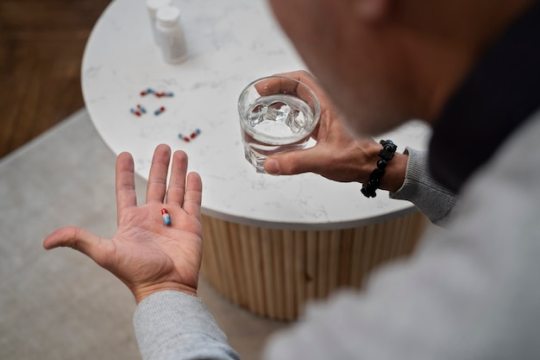
10. **Consistency and Patience**: Managing diabetes is a lifelong commitment that requires consistency and patience. Stay committed to your healthy lifestyle habits, even when faced with challenges or setbacks. Celebrate your progress and focus on making sustainable changes for long-term health and well-being.
You can try to this product, Pleasure nerve


While complete elimination of diabetes may not be possible for everyone, significant improvements in blood sugar control and overall health are achievable through proactive management and healthy lifestyle choices. By incorporating these strategies into your daily routine and working closely with your healthcare team, you can take control of your diabetes and live a full, active life.
You can try to this product , Pleasure nerve
Open this link in your chrome browser
2 notes
·
View notes
Text
Understanding PCOS: Unravelling the Complexity of a Common Hormonal Disorder
Hello and welcome back to Shining Through PCOS! Today, we’re diving deeper into what PCOS really is, how it’s diagnosed, and the unique ways it affects women.
What is PCOS?
Polycystic Ovarian Syndrome (PCOS) is more than just a hormonal imbalance; it's a multifaceted condition that affects approximately 1 in 10 women of reproductive age around the globe (Singh et al., 2023). The symptoms can vary significantly, from irregular menstrual cycles to the presence of polycystic ovaries and elevated levels of androgens—often referred to as male hormones (Singh et al., 2023). One of the most challenging symptoms is hirsutism, characterised by the growth of coarse, dark hair in areas typically associated with male hair patterns, such as the face, chest, and back (Spritzer et al., 2022).
For many women, including myself, the emotional toll of excess hair growth is profound. It can feel like a constant battle against your own body, leading to feelings of frustration and embarrassment, especially when it’s in visible areas. I remember feeling overwhelmed by societal expectations of beauty while grappling with my own unwanted hair growth, leading me to seek out various treatments such as depilatory creams and shaving that only exacerbated my issue.
Diagnosing PCOS: The Complexity of Symptoms
Diagnosing PCOS is not always a straightforward process. This can be quite difficult because it can manifest so differently from woman to woman. In an attempt to help doctors better identify the condition, the Rotterdam criteria were introduced (Smet & McLennan, 2018). This diagnostic tool provides a standardised way to assess whether someone has PCOS by looking at three key factors:
Irregular or absent periods – This signals potential ovulatory dysfunction.
Signs of hyperandrogenism (excess androgens) – Such as excess hair growth, acne, or thinning hair on the scalp.
Polycystic ovaries on an ultrasound – Where the ovaries show multiple, small cysts.
To meet the diagnosis of PCOS, two out of these three criteria must be present. What’s important to note is that you don’t need to meet all three, which can lead to different manifestations of PCOS depending on the patient (Smet & McLennan, 2018). However, the absence of a universal diagnostic test can lead to delays in receiving proper care.
Many women find themselves navigating a confusing landscape where symptoms overlap with other conditions, making it crucial for us to advocate for our health. Often, healthcare providers may overlook the complexity of PCOS, attributing symptoms solely to lifestyle factors or weight issues, rather than considering the broader hormonal picture (Dewani et al., 2023).
The Hormonal Landscape and Its Impact on Women
The hormonal imbalance at the heart of PCOS doesn’t just affect our reproductive health; it also has significant implications for our metabolic and emotional well-being. Women with PCOS are at a higher risk of developing insulin resistance, which can lead to weight gain and complicate our ability to manage our symptoms (Barber et al., 2019). This can create a vicious cycle, where weight gain exacerbates hirsutism, making it even more challenging to feel a sense of autonomy over our bodies (Barber et al., 2019).
Moreover, the psychological aspects of PCOS are often overlooked. Many women report feelings of anxiety and depression associated with their symptoms, which can be exacerbated by societal pressures and beauty standards (Almhmoud et al., 2024). When we look at the prevalence of conditions such as generalised anxiety and depressive disorders amongst diagnosed women with PCOS, the rate is between 28% and 39% for anxiety, and 11% to 25% for depression (Dewani et al., 2023). This makes it all the more essential to recognise that PCOS is not just a reproductive disorder but a condition that impacts many facets of our lives.
The Role of Laser-Based Hair Reduction (LBHR)
For women dealing with hirsutism, finding effective and long-lasting treatment options can feel like a constant battle. One treatment that has gained significant attention is Laser-Based Hair Reduction (LBHR), which offers a long-term solution for managing excessive hair growth (Hosseini et al., 2022). Although it's not a cure for PCOS, LBHR can help in controlling a key symptom: unwanted hair growth.
As someone who has experienced this issue firsthand, and as a dermal clinician who has seen numerous patients benefit from LBHR, I truly feel that this treatment can help empower women by giving them a sense of control over their bodies. I’ve seen women come into the clinic feeling closed off, hesitant, and unsure during their first consultation. But as their treatments progress, something amazing happens—their confidence begins to grow. Session after session, they become more comfortable in their own skin, seeing results and no longer feeling defined by their unwanted hair. It’s truly rewarding to witness that transformation, especially as this is something that hits very close to home.
In saying this, it's important to have a clear understanding of what LBHR can—and cannot—achieve. While LBHR significantly reduces the rate of hair regrowth, it does not address the underlying hormonal imbalances that cause hirsutism in PCOS. PCOS is a chronic hormonal condition, and excess androgens (male hormones) will continue to trigger hair growth even after several laser sessions (Kopera et al., 2010). What LBHR does is target the melanin within the hair follicle, slowing down the process by damaging these follicles, leading to thinner, finer hair that delays the growth process over time (Bhat et al., 2020).
It’s important to note that LBHR typically requires multiple sessions spaced out over several weeks to months, as hair grows in cycles, and laser treatments target hair follicles during their active growth phase (anagen phase). In my experience, patients usually see optimal results after 6 to 8 sessions, but individual responses vary based on factors like skin type, hair texture, and hormonal fluctuations (Bhat et al., 2020). This makes a personalised treatment plan crucial.
One thing I always emphasise to patients is that LBHR isn’t a quick fix, but rather a long-term management tool. Even after completing the initial series of treatments, most women with PCOS will need maintenance sessions to keep hair growth under control. While it can significantly improve quality of life by reducing the need for constant hair removal methods like shaving, waxing, and depilatory creams, LBHR should be viewed as part of a comprehensive approach to managing PCOS—not a stand-alone solution (Sheehan, 2004).
Combining LBHR with treatments that address hormonal imbalances, such as medication (like anti-androgens) or lifestyle changes, ensures the most effective, lasting results (Tan et al., 2024). Think of it as attacking an issue from every angle to ensure the best outcome. In this way, LBHR becomes a cornerstone in a broader PCOS management plan, helping to reduce the emotional and physical toll of hirsutism while maintaining realistic expectations for long-term hair control.
Finding the Right Treatment Path for You
Navigating PCOS requires a holistic approach. From my experiences, having a healthcare provider who understands both the medical and aesthetic aspects of treatment is essential. We spoke earlier about combination therapies, but a similar multidisciplinary approach, including endocrinologists, dermatologists, and even nutritionists, can help us manage our symptoms in the most effective way.
In my own journey, I learned that addressing the root causes of PCOS—rather than just its symptoms—is the key to achieving lasting relief. This isn’t a standalone task and involves lifestyle changes alongside medical treatments tailored to my needs.
In future posts, we’ll explore these topics in more depth, discussing the science behind PCOS, how it affects hair growth specifically, and how we can navigate the challenges many women face while managing this condition. My hope is that by sharing these insights, we can create a supportive community for all of us living with PCOS as a collective.
Thank you for joining me as we unravel the complexities of PCOS and its impact on our lives. Together, let’s empower ourselves and others to take control of our health and well-being.
Until next time, L ᥫ᭡
References
Almhmoud, H., Alatassi, L., Baddoura, M., Sandouk, J., Alkayali, M. Z., Najjar, H., & Zaino, B. (2024). Polycystic ovary syndrome and its multidimensional impacts on women’s mental health: A narrative review. Medicine, 103(25), e38647. https://doi.org/10.1097/md.0000000000038647
Barber, T. M., Hanson, P., Weickert, M. O., & Franks, S. (2019). Obesity and polycystic ovary syndrome: Implications for pathogenesis and novel management strategies. Clinical Medicine Insights: Reproductive Health, 13, 117955811987404. https://doi.org/10.1177/1179558119874042
Bhat, Y. J., Bashir, S., Nabi, N., & Hassan, I. (2020). Laser treatment in hirsutism: An update. Dermatology Practical & Conceptual, e2020048. https://doi.org/10.5826/dpc.1002a48
Dewani, D., Karwade, P., & Mahajan, K. S. (2023). The invisible struggle: The psychosocial aspects of polycystic ovary syndrome. Cureus. https://doi.org/10.7759/cureus.51321
Hosseini, M. H., Ehsani, A. H., Fakour Y., Aryanian Z., Elhamfar M., & Noormohammadpour P. (2022). Effect of Laser-Assisted Hair Removal (LAHR) on the Quality of Life and Depression in Hirsute Females: A Single-Arm Clinical Trial. J Lasers Med Sci, 13. https://doi.org/10.34172/jlms.2022.46
Kopera, D., Wehr, E., & Obermayer-Pietsch, B. (2010). Endocrinology of hirsutism. International Journal of Trichology, 2(1), 30. https://doi.org/10.4103/0974-7753.66910
Sheehan, M. T. (2004). Polycystic ovarian syndrome: Diagnosis and management. Clinical Medicine & Research, 2(1), 13-27. https://doi.org/10.3121/cmr.2.1.13
Singh, S., Pal, N., Shubham, S., Sarma, D. K., Verma, V., Marotta, F., & Kumar, M. (2023). Polycystic ovary syndrome: Etiology, current management, and future therapeutics. Journal of Clinical Medicine, 12(4), 1454. https://doi.org/10.3390/jcm12041454
Smet, M. E., & McLennan, A. (2018). Rotterdam criteria, the end. Australas J Ultrasound Med, 21(2), 59-60. https://www.ncbi.nlm.nih.gov/pmc/articles/PMC8409808/
Spritzer, P. M., Marchesan, L. B., Santos, B. R., & Fighera, T. M. (2022). Hirsutism, normal androgens and diagnosis of PCOS. Diagnostics, 12(8), 1922. https://doi.org/10.3390/diagnostics12081922
Tan, K., Coster, T., Mousa, A., Mar, A., Piltonen, T., Boyle, J. A., Teede, H., Joham, A., Romualdi, D., & Tay, C. T. (2024). Laser and light-based therapies for hirsutism management in women with polycystic ovarian syndrome. JAMA Dermatology, 160(7), 746. https://doi.org/10.1001/jamadermatol.2024.0623
7 notes
·
View notes
Text
Diabetes

Introduction to Diabetes
Diabetes, a metabolic disorder characterized by chronic hyperglycemia, arises from abnormalities in insulin secretion, insulin action, or both. The condition’s prevalence has reached epidemic proportions globally, with significant health, economic, and social implications.
Types of Diabetes
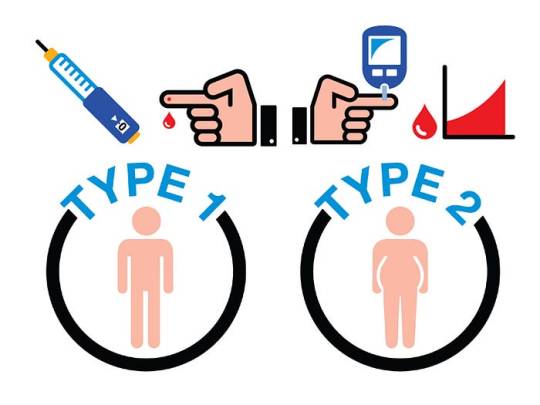
Type 1 Diabetes: This autoimmune disease results from the destruction of pancreatic beta cells, leading to absolute insulin deficiency. Genetics and environmental triggers play pivotal roles in its pathogenesis. Despite being less common than Type 2 diabetes, its onset during childhood or adolescence significantly impacts individuals’ lives.
Type 2 Diabetes: Predominantly a disorder of insulin resistance, Type 2 diabetes accounts for the majority of diabetes cases worldwide. Lifestyle factors, genetic predisposition, and obesity contribute to its development. Its insidious onset often leads to delayed diagnosis and increased risk of complications.
Gestational Diabetes: Occurring during pregnancy, gestational diabetes poses risks to both maternal and fetal health. Hormonal changes and insulin resistance characterize its pathophysiology. Effective screening and management are crucial to prevent adverse outcomes.
Other Types of Diabetes: Variants like MODY, LADA, and secondary diabetes present unique challenges in diagnosis and management, requiring tailored approaches to care.
Epidemiology and Prevalence
Diabetes prevalence varies across demographics, with disparities observed in age, gender, ethnicity, and socioeconomic status. The escalating burden of diabetes underscores the urgent need for targeted prevention and management strategies.
Symptoms and Causes
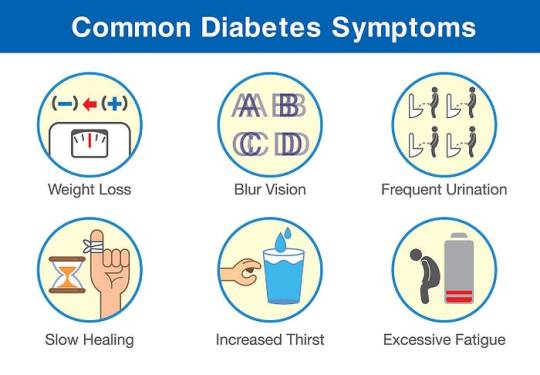
Hyperglycemia-induced symptoms like polyuria, polydipsia, and unexplained weight loss serve as clinical indicators for diabetes diagnosis. Understanding the complex interplay of genetic, environmental, and lifestyle factors elucidates the condition’s etiology.
Complications
Diabetes complications encompass a spectrum of microvascular and macrovascular disorders, significantly impacting quality of life and life expectancy. From diabetic retinopathy to cardiovascular disease, nephropathy, neuropathy, and diabetic foot complications, the ripple effects of uncontrolled diabetes are profound.
Diagnosis and Tests
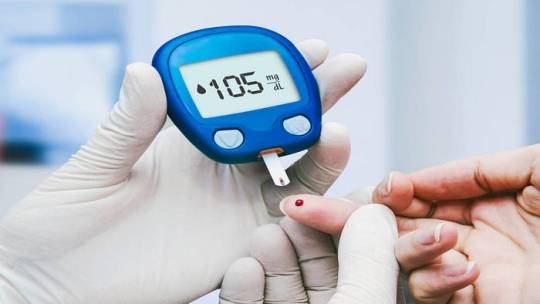
Accurate diagnosis relies on comprehensive evaluation, including fasting glucose, oral glucose tolerance tests, and hemoglobin A1c measurements. Screening recommendations aim to identify at-risk individuals early, facilitating timely intervention and risk reduction.
Management and Treatment
Diabetes management strategies encompass pharmacotherapy, lifestyle modifications, patient education, and multidisciplinary care. Individualized treatment plans address glycemic control, blood pressure management, lipid optimization, and prevention of complications.
Prevention
Prevention initiatives target modifiable risk factors through health promotion, public health interventions, and community engagement. Emphasizing the role of nutrition, physical activity, and behavioral changes empowers individuals to mitigate their diabetes risk.
Outlook and Prognosis
Prognostic factors such as glycemic control, adherence to therapy, comorbidity burden, and psychosocial support influence long-term outcomes. Enhanced collaboration among healthcare providers, policymakers, and stakeholders is essential to improve diabetes prognosis globally.
Living With Diabetes

Coping with diabetes requires resilience, self-management skills, and social support networks. Empowering individuals through education, self-monitoring tools, and peer support enhances their capacity to navigate the challenges of daily diabetes management.
Impact on Individuals and Society
Diabetes exerts a profound socioeconomic burden, encompassing healthcare costs, productivity losses, and reduced quality of life. Addressing the psychosocial dimensions of diabetes care is integral to fostering holistic well-being and societal resilience.
Future Directions and Research
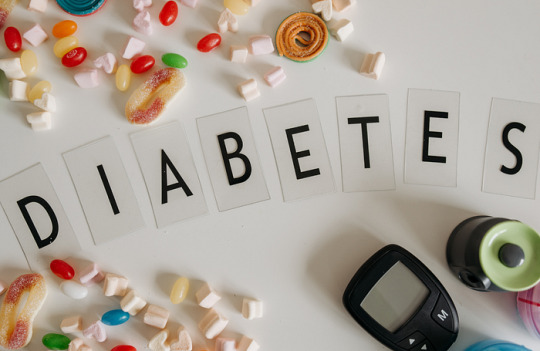
Advancements in diabetes research, including precision medicine, digital health technologies, and novel therapeutics, offer promising avenues for disease management and prevention. Collaborative research endeavors aim to translate scientific discoveries into tangible clinical benefits.
Conclusion
In conclusion, diabetes represents public health challenge necessitating a comprehensive, patient-centered approach. By fostering awareness, promoting early detection, and advancing evidence-based interventions, we can mitigate the impact of diabetes on individuals, families, and communities worldwide.
Medical students encounter significant academic challenges during their studies, balancing coursework, clinical rotations, research, and personal commitments. Expert Academic Assignment Help offers tailored assistance to meet their needs, providing study materials, tutoring, assignment help, and exam preparation. Beyond academics, it fosters a supportive environment for mentorship and guidance. In essence, Expert Academic Assignment Help is a valuable resource for medical students, empowering them to excel academically and develop into competent healthcare professionals. Contact at [email protected] for assistance.
#assignment help#healthcare#medical students#nursing student#nursing school#medical school#medical student#medicine#health tips#health and wellness#health#health & fitness#diabetes#diabetic#medical help#medical assistance#pharmacy student#pharmacy technician#homework help#academic assignments#expert assignment writers
2 notes
·
View notes
Text
Sugar Detox Challenge: Ditch the Cravings & Boost Your Energy Levels
Sugar – it's sweet, satisfying, and oh-so-addictive. But excessive sugar consumption can wreak havoc on your health, leading to energy crashes, weight gain, and increased risk of chronic diseases. If you're ready to break free from the sugar trap, join us on a Sugar Detox Challenge. In this blog post, we'll explore the importance of reducing sugar intake, signs of sugar addiction, and provide actionable tips to help you conquer those cravings and boost your energy levels.

Understanding the Impact of Sugar:
While sugar provides a quick energy boost, the subsequent crash can leave you feeling tired and irritable. Over time, excessive sugar intake has been linked to weight gain, insulin resistance, inflammation, and an increased risk of conditions like type 2 diabetes and heart disease. Taking control of your sugar consumption is a powerful step towards better health.

Signs of Sugar Addiction:
Intense Cravings: Regular, intense cravings for sugary foods and drinks may indicate a dependency on sugar.
Energy Slumps: If you experience energy crashes or fatigue shortly after consuming sugary items, it could be a sign of sugar addiction.
Mood Swings: Sugar highs and lows can contribute to mood swings and irritability.
Weight Gain: Excessive sugar intake is closely linked to weight gain, particularly around the abdominal area.
Difficulty Cutting Back: If you find it challenging to reduce your sugar intake despite knowing the potential health risks, it may be a sign of addiction.

Tips for a Successful Sugar Detox:
Gradual Reduction: Rather than going cold turkey, gradually reduce your sugar intake to make the process more sustainable.
Read Labels: Be vigilant about reading food labels, as sugar hides under various names. Choose whole, unprocessed foods whenever possible.
Healthy Substitutes: Replace sugary snacks with healthier alternatives like fresh fruits, nuts, or Greek yogurt.
Stay Hydrated: Drink plenty of water to stay hydrated and help curb cravings.
Explore healthyorganicessentials.com/gluco-control-achieving-optimal-blood-sugar-balance/ This link provides additional insights on achieving optimal blood sugar balance. It may offer valuable information to complement your sugar detox journey.
Embarking on a sugar detox challenge is a proactive step towards reclaiming your health and boosting your energy levels. By understanding the impact of sugar, recognizing signs of addiction, and implementing practical tips for reducing sugar intake, you can break free from the cycle of cravings and experience a renewed sense of vitality. Start your sugar detox today and embrace a healthier, more energized version of yourself!
3 notes
·
View notes